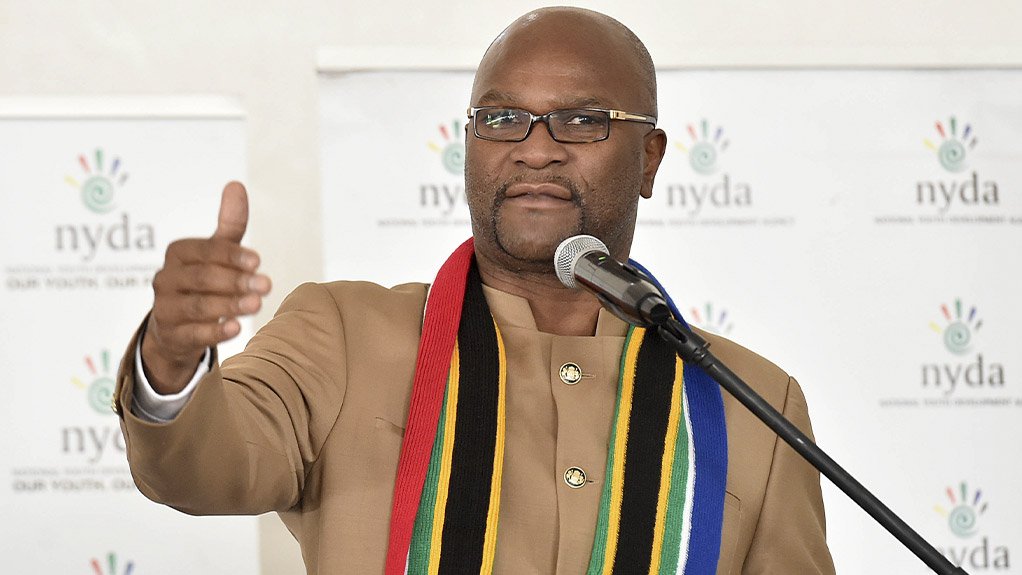/ MEDIA STATEMENT / The content on this page is not written by Polity.org.za, but is supplied by third parties. This content does not constitute news reporting by Polity.org.za.
On his second day of testimony before the commission of inquiry into state capture on Wednesday, Hawks investigator Kobus Roelofse named senior journalist Ranjeni Munusamy and Arts and Culture Minister Nathi Mthethwa as beneficiaries of proceeds from an illegal scheme in which the secret service account (SSA) of the crime intelligence (CI) unit of the police was abused.
Munusamy has since been placed on special leave by her current employer, Tiso Blackstar, pending an investigation into the allegation that a vehicle finance account in her name was settled using funds from a private account held outside CI by a service provider. She has denied the allegation in a statement, saying that she is consulting with her lawyers on how to respond to the revelation.
Roelofse told the inquiry that according to findings of one of his investigations into the use of the slush fund by former CI head Richard Mdluli and several of his senior colleagues for private gain, he came across proof of a payment in 2008 from Atlantis Motors that paid off Munusamy’s car to the tune of R143 000. She was at the time not attached to any media company. The transaction was made to her Wesbank vehicle finance account, said Roelofse, from an account held by Atlantis Motors in Centurion, which supplied the unit with vehicles for some time during Mdluli’s tenure. It was the dealership’s principal dealer at the time, Jan Venter, who led Roelofse to the finding.
Evidence leader Advocate Veruschka September however pointed out that the commission had received a letter clarifying that the name on the Wesbank account was in fact Navaranjeni Munusamy and not Ranjeni. The latter is however a shortened version of Navaranjeni.
The account held by Atlantis also helped pay for a private trip that Mdluli took with his first wife to China to visit their daughter who was studying there, in November 2010. While the total cost of the trip was R110 000, Mdluli did not spend a cent on it, according to Roelofse, as R60 000 came from the SSA while the rest was “donated” from the account held at Atlantis. The basis for the establishment of the account by Venter was that he wanted to assist officials of CI in their quest to fight crime, and thought a private stash of funds for this purpose was necessary, according to what he told Roelofse. Little did he know that a lot of the money kept in this account would be exploited for private use.
Responding to a question from commission chairperson Deputy Chief Justice Raymond Zondo on whether it was usual or not, Roelofse said a plausible explanation for the creation of the account was most probably to avoid scrutiny from the auditor-general, who investigates the expenditure of public funds. Atlantis was the preferred provider of vehicles for CI, raking in around R69-million in car sales over the period 2009 to either the end of 2011 or early 2012.
September asked if the broad scheme – which Roelofse said included the trading in and reversal of vehicles at inflated prices; inflated rental costs for property otherwise earmarked as safe houses; and paying off several journalists for smearing certain individuals – was borne out of CI’s relationship with Atlantis. Roelofse said this was the case.
In the case of Mthethwa, Roelofse said the security upgrades to his private home were not out of the norm, but the amount spent – some R200 000 – was above the limit required for cabinet members. He could not say for sure if Mthethwa knew of the cost or the extent of the monies spent for the upgrade. This and many other investigations he has overseen are stifled by red tape, as documents that could help him verify and conclude his findings remain classified over a decade on, despite efforts to get them declassified.
At this point Zondo urged his legal team to probe the procedures required for the de-classification process. The frustration for Roelofse, he told the inquiry, was that it was the very implicated people in the said documents that were required to de-classify them over the years, making the feat untenable for obvious reasons. There seemed to be some reprieve in 2011 when, under then acting national police commissioner Nhlanhla Mkhwanazi, it appeared that there would be movement following an order he made for the de-classification, but nothing happened and after he was replaced the investigations team was back at square one.
Lieutenant-General Julius Molefe, who replaced Mdluli after the latter was suspended in 2011 while a case of murder and kidnapping was investigated against him, gave an instruction that the classified documents be handed over to the then Inspector-General of Intelligence (IGI), Faith Radebe. This was on the back of a declaration by former director of special investigations in the National Prosecuting Authority (NPA) Advocate Lawrence Mrwebi that the process to de-classify sat not with the NPA but with the IGI.
Roelofse spent some time elaborating on processes within the police service that he said failed his team, with regard to his endeavour to get the relevant documents de-classified.
Issued by Corruption Watch
EMAIL THIS ARTICLE SAVE THIS ARTICLE ARTICLE ENQUIRY
To subscribe email subscriptions@creamermedia.co.za or click here
To advertise email advertising@creamermedia.co.za or click here











